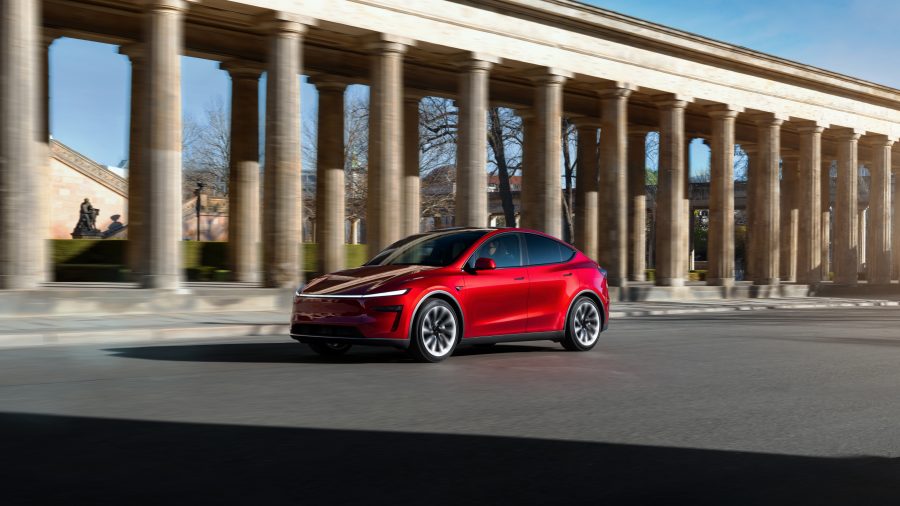 AI
AI
 AI
AI
 AI
AI
Shares of Tesla Inc. rose more than 8% today after the company launched a small-scale pilot of its autonomous taxi service in Austin.
The company currently offers access to about 10 self-driving Model Y SUVs, according to TechCrunch. The Model Y (pictured) has a maximum range of more than 330 miles and up to seven seats depending on the configuration. Its onboard computer runs an autonomous driving platform called Fully Self-Driving.
Tesla trained the artificial intelligence models that power Full Self-Driving using road measurements collected from customers’ vehicles. The company says that the data, which is anonymized before it’s used in AI development, covers “billions of miles” of roads. Tesla collected the information using the more than a half-dozen cameras that are included in each of its vehicles, which are also used by Full Self-Driving to navigate.
Self-driving vehicles usually don’t rely on cameras alone to collect road data. Alphabet Inc.’s Waymo LLC, for example, equips its autonomous taxis with a mix of cameras, radar units and lidar sensors. Lidar technology is used partly because it can collect data in situations when a vehicle’s cameras don’t work reliably, including in low-light conditions and during rain.
Tesla’s autonomous taxis will reportedly operate in a “narrowly defined area” of Austin between 6 a.m. and midnight. On launch, they’re available only to a limited number of social media influencers. Tesla has launched a website that allows users to request access.
Videos posted by early customers appear to show several incidents in which autonomous Model Y vehicles violated traffic laws. In two clips spotted by Bloomberg, Tesla’s self-driving taxis appeared to exceed speed limits. In another video, a Model Y drove into a lane that it was not allowed to enter and then exited it by crossing a double-yellow line.
Last year, the U.S. National Highway Traffic Safety Administration opened a probe into the company’s autonomous driving software over reliability concerns. The investigation was prompted by several collisions that involved Tesla vehicles in which the software was enabled.
Earlier this year, the NHTSA opened another probe into Tesla over its Actually Smart Summon feature. The technology, which is designed for use in environments such as parking lots, allows the company’s vehicles to navigate automatically to a user-specified location. The NHTSA opened the probe in response to multiple reports of crashes involving Actually Smart Summon.
The regulatory scrutiny of Tesla’s AI software could complicate its autonomous taxi plans. The company plans to launch 1,000 taxis over the next few months, as well as expand the availability of its ride-hailing service to San Francisco and Los Angeles. Waymo already operates in both cities along with several other markets.
Tesla’s longer-term plans revolve around the Cybercab, an upcoming vehicle that it previewed late last year. It’s an autonomous taxi with two seats, doors that open upwards, and no steering wheel or pedals. Tesla plans to start producing the vehicle by 2027.
Support our mission to keep content open and free by engaging with theCUBE community. Join theCUBE’s Alumni Trust Network, where technology leaders connect, share intelligence and create opportunities.
Founded by tech visionaries John Furrier and Dave Vellante, SiliconANGLE Media has built a dynamic ecosystem of industry-leading digital media brands that reach 15+ million elite tech professionals. Our new proprietary theCUBE AI Video Cloud is breaking ground in audience interaction, leveraging theCUBEai.com neural network to help technology companies make data-driven decisions and stay at the forefront of industry conversations.